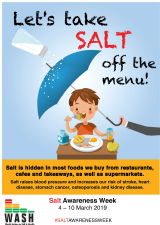Lithuania
Sodium, Potassium and Iodine Intake in an Adult Population of Lithuania.
Urte Zakauskiene, Ernesta Macioniene, Lina Zabuliene, Diana Sukackiene, Ausra Linkeviciute-Dumce, Valdas Banys, Nomeda Bratcikoviene, Dovile Karosiene, Virginija Slekiene, Virginijus Kontrimas, Kazys Simanauskas, Algirdas Utkus, Deimante Brazdziunaite, Vilma Migline, Indre Makarskiene, Ingrida Zurlyte, Ivo Rakovac, Joao Breda, Francesco P. Cappuccio and Marius Miglinas.
Nutrients 2022; 14: 3817. https://doi.org/10.3390/nu14183817
Abstract: Hypertension is a leading risk factor for cardiovascular events and death. A reduction in salt intake is among the most cost-effective strategies to reduce blood pressure and the risk of cardiovascular diseases. Increasing potassium lowers blood pressure and is associated with lower cardiovascular risk. Adequate iodine intake is important to prevent iodine deficiency disorders. Salt iodization is a key strategy to prevent such deficiency. In Lithuania, no surveys have been performed to directly assess sodium, potassium and iodine consumption. The aim of the present study was to measure sodium, potassium and iodine intake in a randomly selected adult Lithuanian adult population using 24 h urine collections, and to assess knowledge, attitudes and behavior towards salt consumption. Salt and potassium intakes were estimated in 888 randomly selected participants by 24 h urine sodium and potassium excretion and 679 individuals provided suitable 24 h urine samples for the analysis of iodine excretion. Average salt intake was 10.0 (SD 5.3) g/24 h and average potassium intake was 3.3 (SD 1.3) g/24 h. Only 12.5% of participants consumed less than 5 g/24 h of salt. The median value of urinary iodine concentration (UIC) was 95.5 μg/L. Our study showed that average salt intake is twice as high as the maximum level recommended by the World Health Organization while potassium and iodine intakes in Lithuania are below the recommended levels.
NATRIJOD SURVEY:
Salt and iodine consumption in Lithuanian population: national recommendations
National Virtual Conference, 14 January 2021
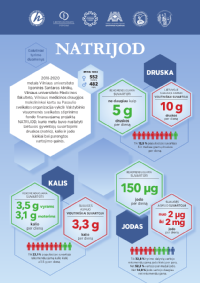
Official presentation of the results of the National survey on salt, potassium and iodine consumption in adults in Lithuania and launch of the National programme on population salt reduction to prevent cardiovascular disease. The Conference has been organised by the Chair of the Scientific Committee, Prof. Marius Miglinas, with the presence of the Ministry of Health of Lithuania (Dr. Indre Makarskiene), under the auspices of the World Health Organization Office for Europe (Dr. Joao Rodrigues Da Silva Breda) and in collaboration with the WHO Collaborating Centre for Nutrition of the University of Warwick (Prof. Francesco Cappuccio).
International Invited speakers:
Dr. Joao Rodrigues da Silva Breda (WHO Regional Office for Europe): Cutting salt to reduce heart disease in WHO European Region.
Prof. Francesco P Cappuccio (WHO Collaborating Centre for Nutrition, University of Warwick): Salt consumption: does it really matter?Link opens in a new window
Prof. Pasquale Strazzullo (President of the Italian Society of Human Nutrition, Federico II University of Naples): Salt and health: salt intake related issues in Italy.
See PROGRAMME
Training for the organization and implementation of a survey using
24-hour urinary sodium excretion methods, based on WHO protocol
Vilnius, Lithuania
17-18 January 2019
SCOPE AND PURPOSE
The WHO has issued a guideline on salt intake for adults and children that recommends no more than 5g salt per day and a population-approach to salt reduction. Despite this, salt consumption far exceeds this recommendation in almost all countries, contributing to the secular epidemic of cardiovascular diseases through its effect on blood pressure.
Cardiovascular diseases are the leading cause of death, disability and premature mortality in the European region, and there is significant potential for health gains from prevention based on reducing population intake of salt.
Responding to this situation, the WHO, the World Health Assembly, and many countries around the world have independently appraised the scientific evidence of the health benefits and cost savings associated with the implementation of a population-wide moderate reduction in sodium intake. They have agreed on a global target for a 30% reduction in sodium intake by 2025 to be achieved through comprehensive salt reduction strategies. Reducing population salt consumption is currently considered as a WHO “best buy” policy.
Monitoring of population salt intake, sources of salt in the diet, and consumer knowledge, attitudes and behaviors relating to salt, is critical to inform the development of comprehensive salt reduction strategies. As a result WHO recommends countries conduct salt intake surveys and provides guidance on the best methods to use to estimate the intakes of sodium (Na) by measuring urinary excretion. Specifically WHO recommends the use of 24-hour measurement. The primary aims of such studies are to estimate the average intake of dietary salt in men and women
The purpose of the meeting is to provide training and assistance to countries in the design and implementation of the study, notably aspects relating to the selected methods, key steps in the protocol, sampling and recruitment, quality control and resources required. Further, a plan for analysis of the findings will be discussed.
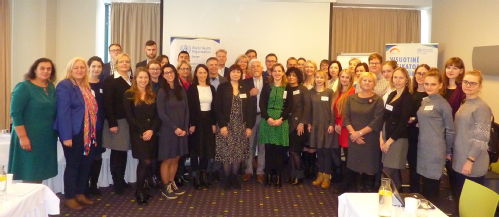
See Participants
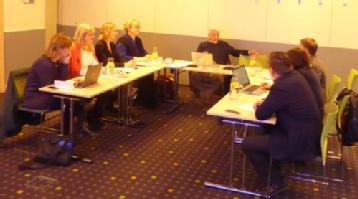
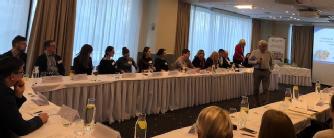
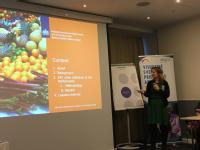
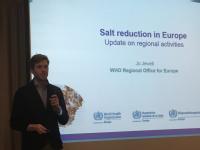
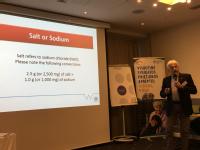
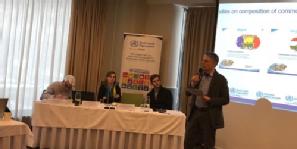
See Programme
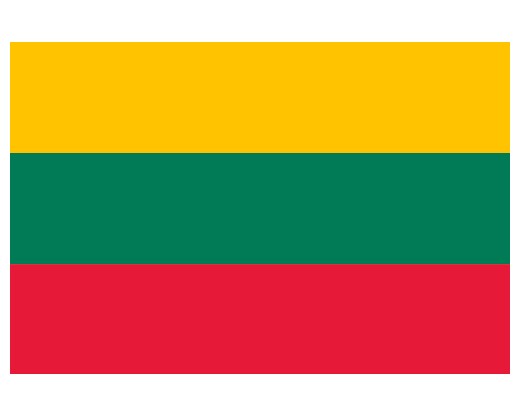
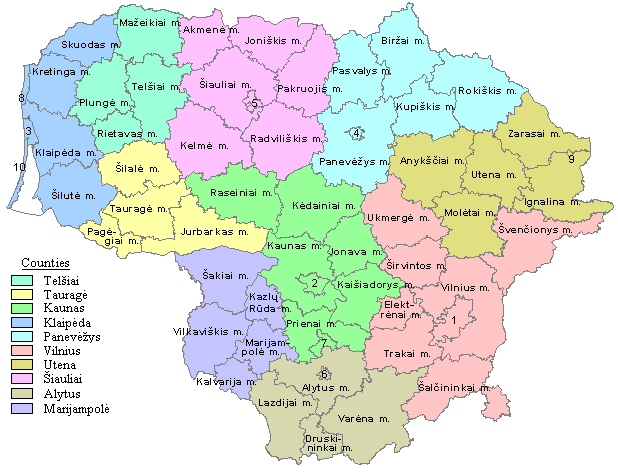
Salt intake (g/day) in Lithuania (2020)
| Mean | SD | |
| Men (n=466) | 11.7 | 5.8 |
| Women (n=422) | 8.4 | 4.1 |
| All (n=888) | 10.0 | 5.3 |
Method: 24h urine collection
Activities
The Lithuanian Hypertension Society and the Lithuanian Kidney Foundation delivered a presentation at the Parliament of the Republic of Lithuania, covering salt intake in the country and the need for actions to reduce intake. This event was also broadcast live online.
The Lithuanian also gained the following media coverage:
A translated version of the WASH poster was displayed on public transportation in the Lithuanian capital Vilnius during the week.
